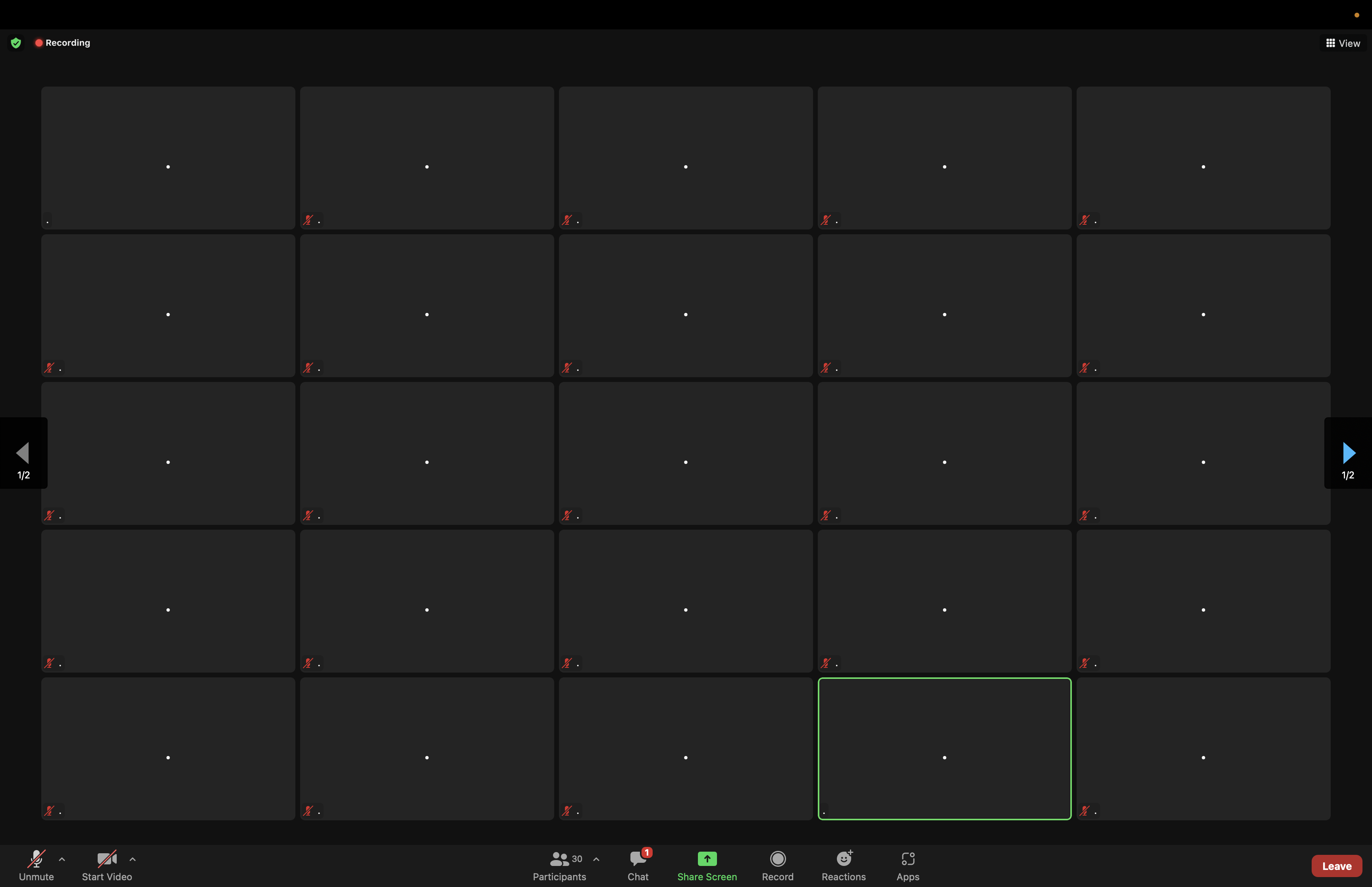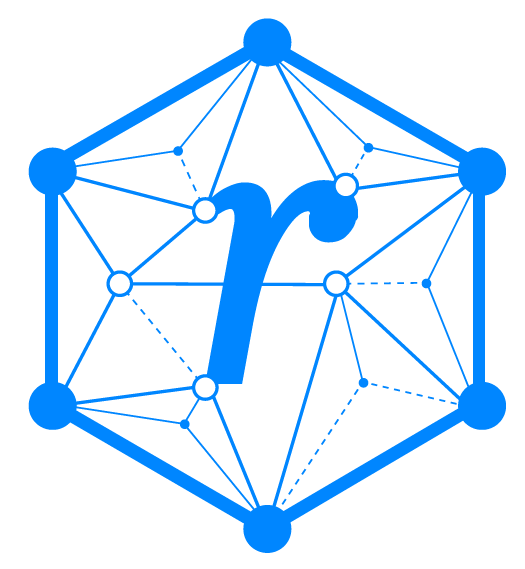Virtual Salon: Out of the Box 2052

The second RWOT Virtual Salon, Out of the Box 2052, gave participants the opportunity to talk about their most optimistic dreams of the future of identity and the internet. Rebooting Web of Trust ran a similar exercise in 2016 and it helped to inform our work for the next five years. As we return to physical events this September, we hope that this event will do the same.
Salon Topics
Unlike our first salon, this one was heavily focused on break-out exercises in groups of two to three. We did not produce a single group statement, but instead shared a score visions of what the future could bring.
Our main break-out topics were:
- Icebreaker. Participants talked about positive shifts brought about by the pandemic.
- Objects. Participants talked about nearby objects that had meaning to them in relation to the identity space.
- Dreams. Participants revealed dreams for the future.
- Challenges. Participants talked about challenges and received consultation on them.
Our main group topic was:
- Social Dreaming Matrix. An open but anonymous stream-of-consciousness discussion.
An Overview
The following graphic captures the major topics and thoughts of the salon:
The Objects
Following our icebreaker on pandemic shifts, we led off with a discussion of objects and how they symbolized identity to us. These objects included a musical keyboard, a phone, interlocked keychains, a COVID mask, a proximity NFC tag, a NAS drive, a yearbook, a DID generator, a mug with coffee, a student ID card, a book of traps, two lego characters, a passport and certificate of vaccination, an Estonia e-residency card, a Tibetan endless knot necklace that was an heirloom, a picture, a plant, a fuzzy microphone protector, a phone with QR code for vaccination proof, and didymium glasses.
The Dreams
The heart of our salon focused on “absurdly optimistic” dreams of the future that may influence the future of identity.
Some of us imagined specific advances such as …
- A private, secure, and convenient identity layer that allows for selective disclosure.
- A D&D game figurine with an NFC sticker that attached to its online character sheet.
- Smart fog that enables privacy and selective disclosure in the physical world.
- A seamless, integrated way to have the “second brain” currently provided by a phone.
Others of us imagined a whole new world …
- A world where individuals can enforce the non-collection of data by organizations.
- A world where collective wisdom emerges without collective bias.
- A world where truth is valued and propagated over opinion.
- A world where communities are living systems that allow societies of open participation.
- A world where there are no divisions between virtuality and physicality, breaking down the barriers between us and them.
- A world where virtuality has been transcended, creating peace.
- A world where online and real identities are not separate things, where the web is just a means to an end.
- A world where people co-create and collaborate seamlessly and effortlessly; where those individuals are activated to make a difference in the areas they care about most, leveraging common interests at scales that matter.
- A world where people are secure in knowing they own their own information and can self-organize into hubs of trust that are regionally rooted, but globally interconnected.
- A world where new social institutions come together with minimal bureaucracy and maximum impact on the issues that matter to us most.
- A world where self-sovereignty and control of information are available as basic, fundamental rights and privileges, not just to those in the know.
- A world where we are all supported and creative and not forced to change how we act just because we feel we should.
- A world where there is an emotional space where we are safe enough to really be our authentic selves and pursue the creativity and passions that call to us.
- A world where multiple worldviews and perspectives are recognized to all have wisdom, and where we can move among them.
- A world where small groups can be effective, where three people gathered together can start an idea and make a difference.
- A world where most decisions happen because everyone agrees upon the best answer.
- A world where people are less manipulated by unseen forces.
The Challenges
We also discussed challenges that were more varied, sometimes moving outside of the digital space. They included:
- How to be an effective elder in the community.
- How to create systems that don’t amplify misinformation.
- How to find and engage good people.
- How to foster the emergence of self-organizing, interconnected groups without a monolithic third party.
- How to get critical mass and velocity to solve a big problem bottom-up, without financial incentives.
- How to carve out time for creativity, self-direction, and exploration.
- How to convince banks, governments, and employers to trust other forms of identity than their own.
- How to grow a project without the needs of investors or advertisers taking precedence.
- How to incentivize coordinated defense of ideas among disparate participants.
- How to resolve current issues with the public perception of blockchain.
- What to highlight to investors in a self-sovereign identity (SSI) solution.
- Whether the tech is ready for SSI and DIDs.
The Quotes
Many insightful things were said during the salon, especially in our “Social Dreaming Matrix”, our main discussion of our absurdly optimistic dreams. This captures some of them. Some quotes might be slightly polished to be more readable.

About Collective Choice
“How Do We Avoid Collective Bias?”
“A 51% vote is 100% lack of consensus.”
“We need to ensure that everyone is being heard.”
About Consensus
“We don’t have to have one massive monoculture. Nature is resilient because it’s made of a whole bunch of interlocking tiny little heterogeneous cultures. You can’t grow a forest just by planting a ton of trees. There is research into planting thirty or forty varieties of trees and shrubs that work together.”
About Humanity Online
“How do we nourish the human spirit? We need to get everyone on the planet fully online and engaged with something that’s inspiring to them.”
“What if everyone could do something that brought them joy and fulfillment?”
About Information
“Humanity is full of examples of groups that seek to wipe out any mention of something.”
“There used to be knowledge horizons, where information only spread as far as people decided to spread it.”
About Metrics
“There’s nothing more dangerous than a number that’s easy to measure and almost useful.”
“The ultimate metric we fetishize is money.”
About Privacy
“Nothing in Facebook is private. The Zuck can see all, and that’s very dangerous.”
About Public Good
“What if everyone got paid to do something good for the planet?”
About Resilience
“I think key to this is trusting the data you put into these systems will stay there.”
About Shared Knowledge
“That idea that H.G. Wells had of the World Brain, where we can all become smarter by collecting our knowledge and working together on goals … I think that’s the lost promise of the internet.”
What Self-Sovereign Means
“We need to build a new foundation that’s in service of the individuals, to decentralize power, not simply to change the architectural model for its own end.”
About Virtual Nations
“We actually have the technology now to form collections of humans that are like nations, but are delineated not by geography, but by shared principles and goals.”
Questions about the Salon
What is RWOT?
RWOT is Rebooting the Web of Trust. We held nine in-person design workshops from 2015-2019. Our goal was to produce actual work product at the workshops, which has resulted in the production of over 50 white papers on the future of identity of the internet, including incubation of the DID standard. We’ve also produced a few code libraries and demonstrations.
The next workshop is tentatively scheduled this September in The Hague. This was our second virtual salon in the interim.
What is a Virtual Salon?
A virtual salon is a meeting of interested people to discuss a topic. In keeping with the work focus of RWOT, our goal is to drive each salon toward producing output, in this case individual and optimistic dreams of the future.
How Many People Attended?
We had approximately 25 participants and a facilitation team of about a half-dozen.
Who Attended?
Our participants were worldwide. In the US, we had participants from California to New York, from Hawaii to Puerto Rico. Worldwide, participants also came from Canada, Finland, Germany, Italy, Mexico, and the UK
How Did You Run Your Virtual Salon?
We used Zoom for our conversations, with ample use of randomly assigned 2-3 person breakout rooms to support smaller discussions where everyone could have a say.
What Were the Guidelines for the Conversations?
All conversation was protected by the Chatham House Rules:
“The Chatham House Rule reads as follows: When a meeting, or part thereof, is held under the Chatham House Rule, participants are free to use the information received, but neither the identity nor the affiliation of the speaker(s), nor that of any other participant, may be revealed.”
Credits
Facilitated by: Dorothy Zablah and Alejandra Costa of The Magic Company
Graphic Recorder: Noora Sirén
Producer: Erica Connell
Editor-in-Chief: Shannon Appelcline
Participants
Will Abramson, Christopher Allen, Joe Andrieu, Georgios Antoniadis, Shannon Appelcline, Elena Chachkarova, Erica Connell, Brad DeGraf, Dario Duran, Andrew Ferreira, Ryan Grant, Elio Grieco, Ivan Jackson, Andre Kudra, Lio Lunesu, Brandon Mason, Steve Melville, Ese Ojo, Dan Ostrovsky, Przemek Praszczalek, Brent Shambaugh, Lohan Spies, Tibet Sprague, Carsten Stöcker, Steve Vitka.
Sponsors
Digital Bazaar, Digital Contract Design
Contributing Sponsors
Blockchain Commons, Legendary Requirements

